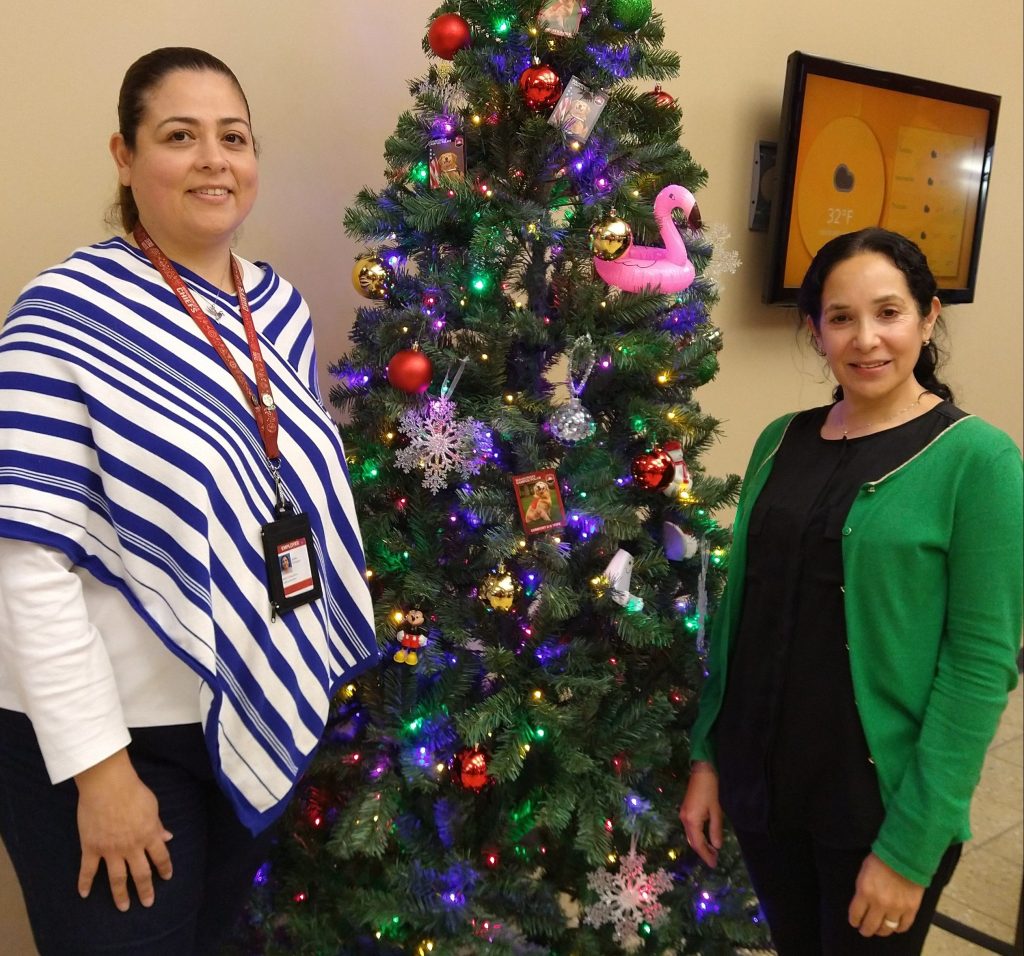Having worked in a large public school for most of my career, I began to realize that day-to-day operations ran smoothly because of the work of secretaries.
Principals, deans and department heads were important, but things operated efficiently because of the secretaries.
I had a second career of sorts as a volunteer in the Waubonsee Community College Adult Education Department. As a tutor for the English as a Second Language (ESL) program, now known as English Language Acquisition, or ELA, I met Edith Vazquez and Margarita Sanchez. They are the Adult Education administrative assistants, and I discovered again that efficiently run schools depend on the work of secretaries and administrative assistants.
I quickly learned that if I would experience any kind of problem, I would go to Edith and she would make things right. I didn’t see Margarita as often as she worked the shift for the day classes, while Edith served the evening classes, but many staff members would also speak of both ladies and of the wonderful work they have done at the school for over 20 years.
Edith and Margarita are graduates of Waubonsee’s Adult Education program, and have served that program as administrative assistants since 2003 and 2002, respectively. I visited with them recently at Waubonsee’s campus in downtown Aurora to talk about their years as students and staff members.
Edith was born in Mexico, and came to the United States and to the Aurora area in 1998. She had finished one year of college in Mexico, but needed English classes to graduate.
“I came here to do that, but stayed because my mom was living here,” she said. “I took the placement test here at Waubonsee, and registered for classes in 1998.
“I knew a few words in English, but couldn’t have a conversation,” she said. “That was a big obstacle for me as I needed to look for a job. Lianna Bolla was my first English instructor, and I want to be sure to mention her.”
Edith took time to obtain her GED in 2000, then returned to ELA until her graduation in 2003. Her last ELA instructor, Sue Morrison, encouraged her to apply for a secretary position in the department, and she began work in March of 2003.
Margarita – known to everyone by her nickname Mago – was also born in Mexico, came to the United States in 1990, and to the Aurora area in 1993. She began as an ELA student at Waubonsee in about 1997, not knowing any English. She took time away with her young children and returned in 2001, and remembered that her first instructor was Sarah Tibbot.
“My teacher of my last level of classes, Sue Morrison, also encouraged me to apply for the open position of secretary, and I began in May of 2002,” she said.
Beginning a new job has probably been intimidating for most of us at some point in our lives, but Mago and Edith faced many obstacles as they began their careers. I learned that it took much in the way of courage and persistence on their part in their early years.
“We didn’t have training to start our job, and it was a challenge,” Mago said. “Language was a problem, and we didn’t have any guide to follow. It was scary because my English was very basic.
“When the phone would ring, my heart would speed up because I didn’t always know how to answer.”
Edith agreed about problems with phone calls in the early years.
“It was scary to answer the phone,” she said. “It’s hard when you don’t see the people in front of you and you can’t read their lips.”
Both of these ladies persisted in spite of their early difficulties, and have become extremely valuable assets to Waubonsee Community College and to their program.
In addition to making class rosters and answering questions of students wanting to enroll, they have helped to validate credentials of people coming from careers in other countries so they can continue their education here.
More importantly, they have tried to find resources to help people experiencing mental health, domestic violence and other issues that have an impact on academic success.
“Sometimes we hear stories that are very sad, and people are trying to find answers for their problems here,” Mago said. “We try to find resources to help them.”
I asked Mago and Edith what they have found most rewarding during their many years of helping students.
“I feel helpful now that I can give students more direction, and I’m more prepared in where to call to help students,” Mago said. “It’s nice when students see you other places, know your name, and say ‘thank you.’ It makes you feel that you are doing something good.”
Edith remembered one special day that lives on for her.
“At an Adult Education recognition ceremony, one of the students came to me and said, ‘Thank you for changing my life.’ I will never forget that,” she said. “Helping my students and my community — I feel very good about that.”
“We enjoy what we do, and that’s why we’re here.” added Mago. “It’s not because we get paid, that’s secondary. People around us can feel special because when they need us, we are there.”
Tom Strong is a freelance reporter for The Beacon-News.


